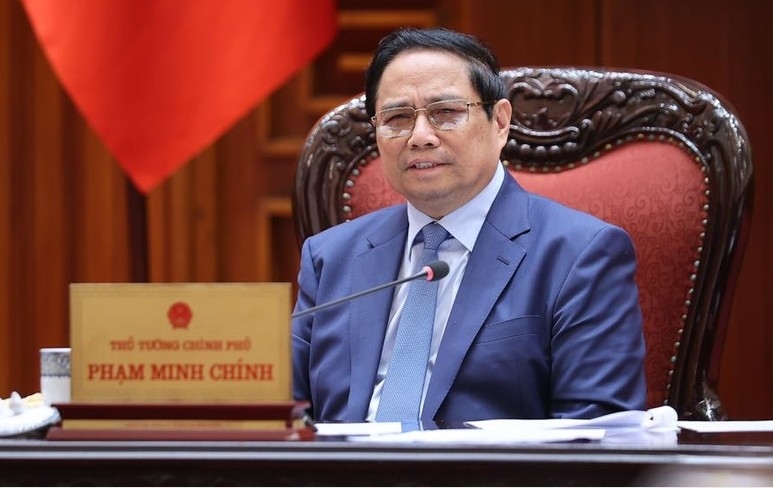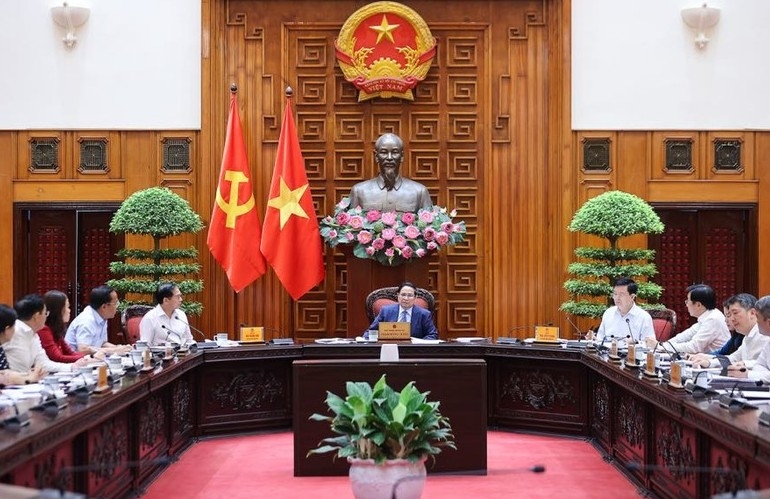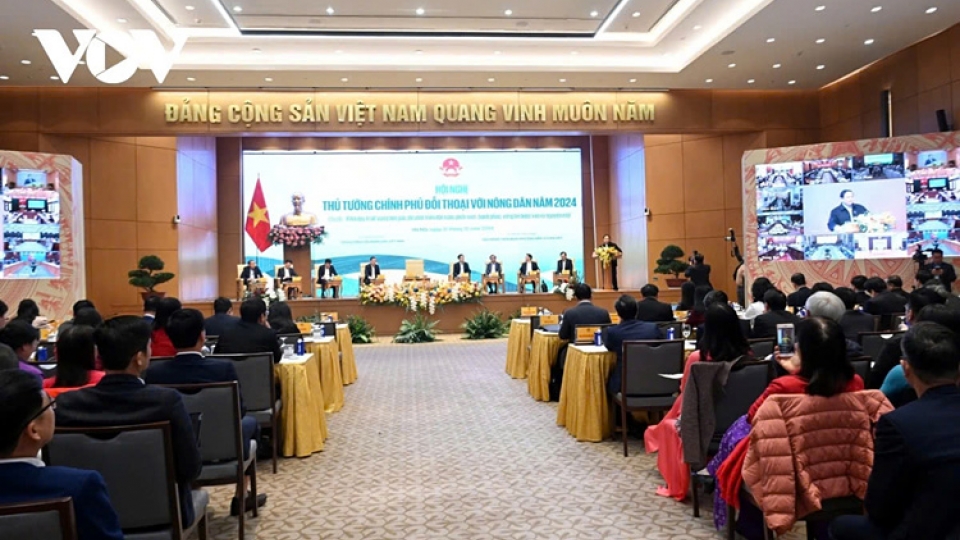PM directs policy priorities on startup nation, BT projects, and global tax compliance
VOV.VN - Prime Minister Pham Minh Chinh chaired a host of Government meetings in Hanoi on July 22 to deliberate key policy matters, including a draft regulation on build-transfer (BT) contracts, the implementation of a top-up corporate income tax under global anti-base erosion rules, and a national strategy.

Joining the meetings were Deputy Prime Ministers Bui Thanh Son and Mai Van Chinh; Minister and Chairman of the Government Office Tran Van Son; Minister of Science and Technology Nguyen Manh Hung; and leaders of relevant ministries and centrally-run agencies.
The sessions focused on finalizing a number of key policy documents, including a draft decree on the implementation of build-transfer (BT) projects, the regulatory framework for enforcing National Assembly Resolution 107/2023 on a top-up corporate income tax aligned with global anti-base erosion rules, and a proposal to develop a national startup ecosystem.
After hearing the reports and opinions presented, PM Chinh offered detailed conclusions and directions for each agenda item. He requested responsible agencies to continue refining draft documents and complete submissions to competent authorities on schedule and with ensured quality.

Regarding the startup nation strategy, the Vietnamese cabinet leader called for a clearer articulation of innovation and digital transformation. He emphasized the principle of broad-based participation: entrepreneurship and innovation should be driven by the people, under the leadership of the Party, the management of the State, and with support from the Vietnam Fatherland Front. These efforts must be consistent with national goals for rapid and sustainable development, contributing directly to GDP growth and labor productivity.
He highlighted the need to raise public awareness, improve institutional frameworks, mobilize internal resources, and empower individuals to succeed through their own intellect. Complementary policies should support these efforts, alongside workforce development, ecosystem building, regular review and recognition of best practices, and robust public communication to build momentum for a national movement of innovation and entrepreneurship, one without limits, where individuals and businesses exceed their own boundaries.
On the BT regulation, the Prime Minister emphasized the need to uphold the principle of promoting decentralization and delegation of authority in tandem with proper resource allocation, stronger implementation capacity, and tighter inspection and supervision. He called for a shift from pre-audit to post-audit mechanisms; ensuring balanced benefits and shared risks among relevant stakeholders; maintaining effective oversight while enabling development; allowing flexible payment methods; and enhancing measures to prevent corruption, negative practices, and wastefulness.




